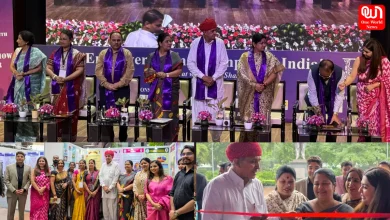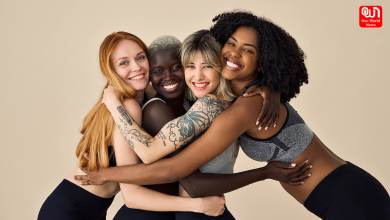MAN-Made, Camera-MAN, Post-MAN, Is Man = Humans? What is the language of Gender Equality?

Patriarchy has been replacing the Representation of the Human Race with Man
It won’t be wrong if we say that a major section of the world has been in a habit of generalizing most of the roles in society with a man. The language of how we address and subconsciously perceive some common roles depends on whether society has inherent patriarchy and gender biases. Starting from the term, ‘MANMADE’ which defines anything that is made by HUMANS, to the term, ‘LAYMAN’ which defines any PERSON who has no specialized knowledge of a particular thing. And for India, it doesn’t just stay with the language used by commoners during addressing (which can be seen as an effect of patriarchy) but is ingrained in the written laws of the country too.
Rhythm Buaria, an advocate practicing before courts and tribunals in Delhi wrote in The Live Wire, “A layperson reading a law including the supreme law of our land, i.e. the constitution, is more likely to encounter the use of male pronouns and male terms (like chairman).” Although she outlined a few laws and amendments to the constitution including Articles 243C, 243D, 243R, 243S, 243T, 243ZD, 243ZE, 338, and 338A) and legislations like the Consumer Protection Act, 2019 (which repealed the Consumer Protection Act, 1986), in which the word ‘chairperson’ is used as opposed to ‘chairman’, though when it comes to pronouns, the law is still male-centric.”
Read more: A Hard Heart is What Makes a Strong Woman. Right?

Where the very fact that these use these laws don’t even give proper recognition and representation to the female counterparts with their maleness, the non-binary genders are completely diminished from the scenario making the culture, less inclusive. To exactly understand why gender-neutral languages should be taken into consideration, here are a few arguments you should check –
– It leads to stereotyping and provokes male dominance – Using terms like ‘Camera Man’ or ‘SpotBoy’ enforces that there are the roles that only the men are likely to do and the same is with addressing any other role and occupation.
– It leads to discrimination, perpetuates male dominance – Even when we look at the frame of binary, it enforces gender inequality and primaries male over other genders.
– It removes inclusivity of all genders in society – The adjectives and pronouns that come in use while addressing all genders give no representation to other genders.
The UNITED NATIONS’s Gender-inclusive language Guidelines in the identification of where do we see gender is in the English language writes, that the English language has very few gender markers, most English nouns do not have grammatical gender forms (teacher, president), whereas a few nouns are specifically masculine or feminine. Where there are nouns that once ended in -‘man’ now have neutral equivalents that are used to include both genders (police officer for policeman/policewoman, spokesperson for spokesman, chair/chairperson for chairman). The challenge it outlines is that for gender-inclusive communication in English is the use of the masculine form by default, which simply suggests that there is a real lack of education to how we perceive the gender norms of the society.
Suggesting how can we use gender-neutral language, the UN suggests
– Using Non-Discriminatory Language
In the form of addressing, there shouldn’t be any gender. The refineries (Mr/ Ms) or pronouns (He/ she) should be eliminated. Instead, their designation, and an inclusive pronoun, ‘they’ should be used.
– Avoiding expressions that are gender-based and enforcing stereotypes
An expression that has a deliberated use of gender which has some identification of stereotypes should be molded in a way that eliminates the gender.
Eg – ‘We will need a chairman for the panel discussion’ should be replaced with ‘We will need a chairperson for the panel discussion’
Making gender visible only when necessary
There have been conversations that can happen by eliminating gender from it. A practice of framing sentences in a way that brings no gender in it should be developed. And if it essentially needs gender, it should be used in inclusive ways.
To have inclusivity in gender in broader ways, it is very important is to have an individual level education for how gender-biased language and explicitly enforcing maleness in it leads to social and cultural enforcement of patriarchy and removes representation of other genders.







